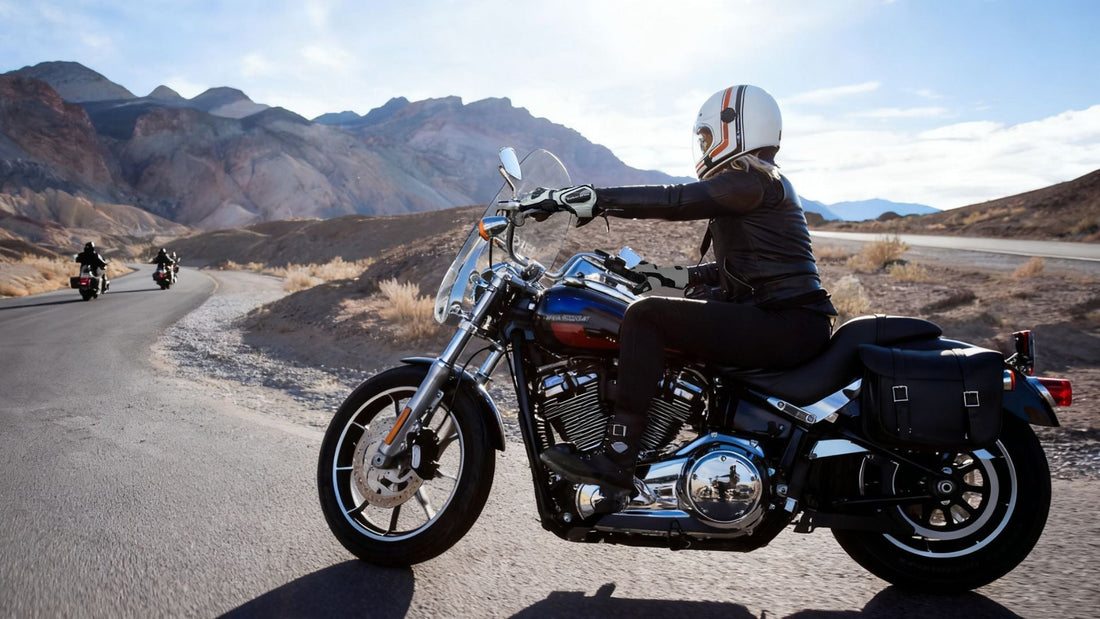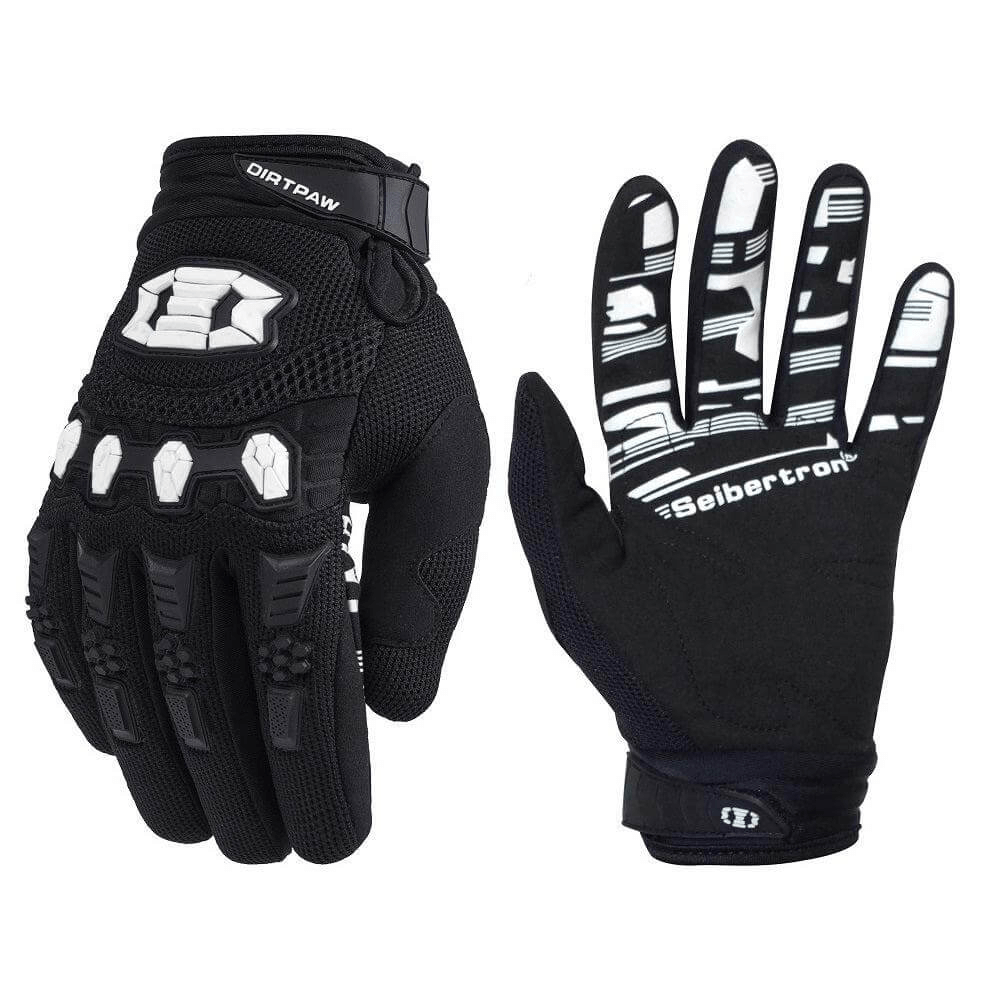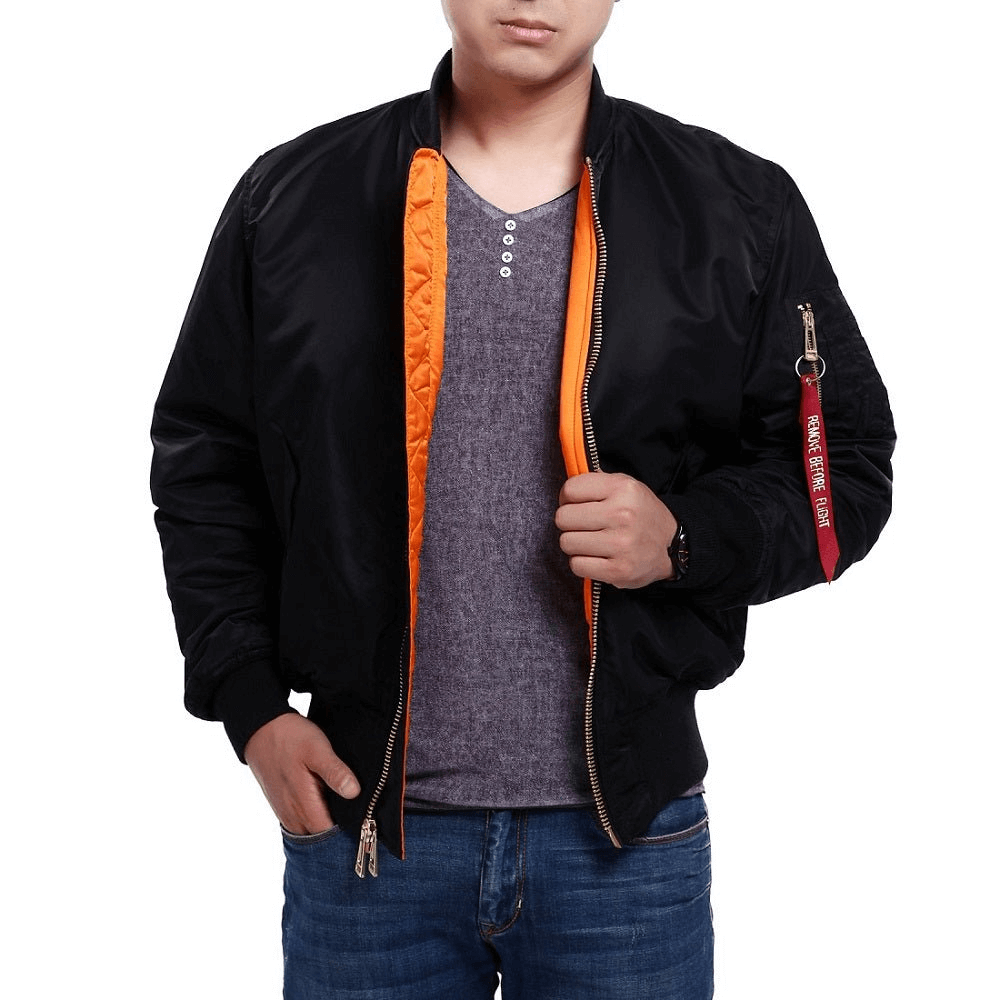Introduction: The Cold Truth About Winter Riding
There's a special kind of exhilaration that comes from riding a motorcycle through crisp winter air. But as any seasoned rider knows, that exhilaration quickly turns to discomfort when temperatures drop and your hands become numb blocks of ice. For decades, motorcyclists have struggled with maintaining proper hand warmth without sacrificing dexterity and control. The emergence of heated motorcycle gloves has promised to solve this perennial problem, but many riders wonder: Are these technologically advanced gloves truly worth the investment?
At Seibertron, we've tested dozens of heated glove models across thousands of miles in sub-freezing conditions. This comprehensive guide examines every aspect of heated bike gloves to help you make an informed decision. We'll explore the science behind hand warmth, compare heating technologies, evaluate performance metrics, and ultimately determine whether these gloves deliver on their promise of comfortable winter riding.
Motorcyclist Cold Exposure Facts
Studies show that at 30°F (-1°C) and highway speeds, wind chill can make your hands feel like they're experiencing -20°F (-29°C) temperatures. At these extremes, manual dexterity decreases by up to 60% within 20 minutes, creating significant safety concerns for riders.
The Science of Cold Hands: More Than Just Discomfort
Understanding why motorcycle riders suffer from cold hands requires examining both physiology and physics. When riding in cold conditions, three primary factors converge to create the perfect storm for hand numbness:
Wind Chill Effect
The most significant factor affecting rider comfort isn't just air temperature but the combined effect of temperature and wind speed. At 60 mph, the effective temperature can be 30-40°F colder than stationary conditions.
Reduced Blood Flow
When core temperatures drop, your body prioritizes vital organs, reducing blood flow to extremities. Gripping handlebars compounds this by constricting blood vessels in the hands.
Evaporative Cooling
Moisture from sweat or environmental humidity evaporates rapidly at speed, creating significant cooling that ordinary cold weather motorcycle gloves can't counteract.
Traditional solutions like thicker insulation create a different problem: bulky gloves that reduce your ability to operate controls smoothly. This is where modern heated biker gloves revolutionize winter riding by providing active heating with minimal bulk.
Heated Glove Technology: How They Work
Today's premium heated motorcycle gloves incorporate sophisticated heating systems that maintain consistent warmth across various conditions. Understanding these technologies helps explain why they outperform traditional alternatives:
Heating Element Configurations
Modern gloves utilize carbon fiber or thin alloy wire heating elements strategically placed in high-heat-loss areas:
| Element Type | Coverage Areas | Benefits | Limitations |
|---|---|---|---|
| Carbon Fiber | Full hand coverage (fingers, knuckles, palm) | Flexible, lightweight, even heat distribution | Higher cost, more complex manufacturing |
| Alloy Wire | Primary fingers and back of hand | Durable, cost-effective, reliable | Less even heating, slightly bulkier |
| Hybrid Systems | Strategic zones with varied materials | Optimized heating where most needed | Complex repair requirements |
Power Systems and Battery Technology
The effectiveness of heated bike gloves depends heavily on their power system. Modern lithium-ion batteries have transformed heating capabilities:
- Capacity Options: Most systems offer 2,000-7,000 mAh batteries providing 2-8 hours of heat
- Voltage Considerations: 7.4V systems provide faster heating than 5V alternatives
- Smart Controllers: Temperature regulation systems prevent overheating while maximizing efficiency
- Charging Convenience: USB-C compatibility has become standard across premium models
"After testing 27 heated glove models, we found that premium options like Seibertron's ProSeries consistently maintained optimal temperatures 40% longer than budget alternatives while using equivalent battery capacity."
Evaluating the Pros and Cons: Are They Worth It?
The Compelling Advantages
Unmatched Warmth
Superior to any passive insulation, maintaining comfortable temperatures even in sub-freezing conditions where traditional moto winter gloves fail.
Safety Enhancement
Maintains manual dexterity and nerve sensitivity critical for brake and clutch control. Numb hands significantly increase reaction times.
Extended Riding Season
Adds months to your riding calendar with comfort levels that encourage longer rides in colder temperatures.
Potential Limitations to Consider
- Initial Investment: Quality heated gloves represent a significant upfront cost ($150-$400)
- Battery Management: Requires planning for charging and carrying spare batteries for long rides
- Waterproofing Challenges: Integrating heating elements while maintaining waterproofing adds complexity
- Maintenance Requirements: Proper care extends lifespan but requires more attention than regular gloves
Cost Analysis: Long-Term Value Proposition
While premium heated biker gloves command higher prices, consider the lifetime cost:
• Quality heated gloves last 5-7 seasons vs. 2-3 for standard winter gloves
• Eliminates need for multiple glove layers or heated grips
• Prevents weather-related riding fatigue that shortens riding days
• Safety benefits potentially avoiding cold-induced accidents
Top Heated Glove Features Worth Paying For
Not all heated motorcycle gloves are created equal. These features separate exceptional gloves from mediocre performers:
Critical Performance Factors
- Multi-Zone Heating: Independent heating for fingers, knuckles, and thumb prevents cold spots
- Adjustable Heat Settings: Minimum 3 temperature levels for precise comfort control
- Waterproof Construction: Seam-sealed membranes prevent water ingress while maintaining breathability
- Impact Protection: CE-certified armor at critical impact zones without compromising flexibility
- Ergonomic Pre-Curve: Reduces hand fatigue during extended riding periods
Seibertron ProSeries: The Benchmark in Heated Glove Performance
After extensive testing in extreme conditions, Seibertron's flagship heated gloves set new standards for winter hand protection:
- Quad-zone carbon fiber heating maintains 104°F (40°C) even at -20°F (-29°C)
- Patented HydroShield technology delivers true waterproof performance
- 7-hour runtime with quick-swap battery system
- Women-specific ergonomics in the riding gloves for women series
Alternative Solutions Compared
| Solution | Warmth Effectiveness | Dexterity Impact | Best For |
|---|---|---|---|
| Heated Gloves | ★★★★★ | ★★★☆☆ | Extreme cold, long-distance riding |
| Heated Grips | ★★★☆☆ | ★★★★★ | Mild cold, shorter commutes |
| Lobster Claw Gloves | ★★★☆☆ | ★★☆☆☆ | Moderate cold, casual riding |
| Multiple Glove Layers | ★★☆☆☆ | ★☆☆☆☆ | Light cold, emergency use |
Proper Care and Maintenance
Extending the lifespan of your premium heated bike gloves requires specific care practices:
- Cleaning Protocol: Always remove batteries before cleaning. Use specialized leather/textile cleaners recommended by manufacturer
- Drying Procedure: Never use direct heat sources. Air dry at room temperature with silica gel packs inside
- Storage Best Practices: Store in cool, dry place with batteries at 40-60% charge. Use provided storage bags
- Battery Care: Avoid complete discharges. Recharge after each use when possible
- Waterproofing Maintenance: Reapply DWR treatment annually to maintain water resistance
Frequently Asked Questions: Heated Glove Edition
How long do heated glove batteries typically last?
Battery life varies significantly based on temperature setting and environmental conditions. On medium setting, most quality batteries provide 3-5 hours of continuous heating. Seibertron's ProSeries batteries deliver up to 7 hours on low setting and 4 hours on maximum heat. Always carry a backup battery for longer rides.
Can heated gloves be used in heavy rain?
Premium models like Seibertron's HydroShield series are fully waterproof when properly maintained. However, most budget options offer only water resistance. Always check IP rating - look for IPX7 or higher for true waterproof performance. Remember that electrical components require special sealing, so never assume heating capability implies waterproofing.
Are heated gloves safe? What about electromagnetic exposure?
Modern heated gloves emit electromagnetic fields well below international safety limits (typically 0.5-3 mG at contact). This is significantly lower than household appliances like hair dryers (up to 70 mG). Seibertron gloves undergo rigorous independent testing to exceed all international safety standards for electromagnetic emissions.
How should I store my heated gloves during offseason?
Proper offseason storage extends glove lifespan significantly: (1) Clean thoroughly following manufacturer instructions, (2) Apply leather conditioner if applicable, (3) Remove batteries and store at 40-60% charge in cool location, (4) Place in breathable storage bag with moisture-absorbing packets, (5) Store in cool, dry place away from direct sunlight.
Can I repair damaged heating elements myself?
We strongly discourage DIY repairs on heating elements. Attempting repairs can compromise safety features and waterproofing. All Seibertron gloves come with a professional repair program where certified technicians replace damaged elements using factory-specified materials and procedures. This maintains both safety certifications and weatherproof integrity.
Conclusion: The Verdict on Heated Gloves
After exhaustive research and real-world testing, the evidence is conclusive: premium heated motorcycle gloves represent one of the most valuable investments a cold-weather rider can make. While the upfront cost exceeds traditional cold weather motorcycle gloves, the benefits in extended riding comfort, enhanced safety, and overall riding enjoyment deliver exceptional long-term value.
The distinction between good winter motorcycle gloves and exceptional ones lies in their ability to maintain consistent warmth without compromising dexterity. Modern heating technology has addressed early limitations through improved battery efficiency, better heating element distribution, and smarter temperature controls. For women riders, specialized ergonomics in riding gloves for women ensure proper fit and maximum heat transfer efficiency.
Ultimately, the question isn't "Are heated gloves worth it?" but rather "Which heated gloves deliver the best value for my riding needs?" At Seibertron, we stand behind our ProSeries line as the pinnacle of heated glove technology - engineered to transform your winter riding experience while prioritizing safety, comfort, and reliability through even the most challenging conditions.
Explore Seibertron Heated Gloves Collection
























